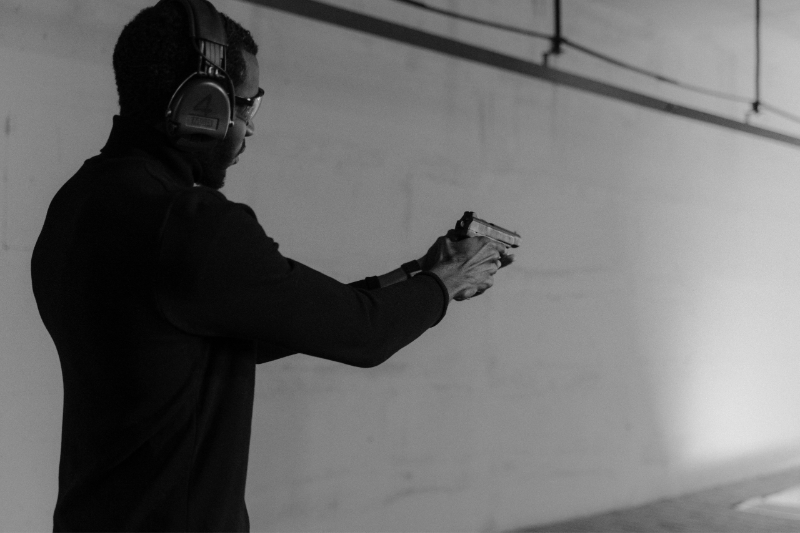Essential Tips and Tools for Getting Started
Introduction
Starting out in shooting can feel overwhelming with the variety of skills, techniques, and equipment involved. Whether you’re interested in shooting as a hobby, for self-defense, or as a competitive sport, having a solid foundation is key. In this guide, we’ll cover essential tips for beginners, from mastering the basics to choosing the right equipment and setting achievable training goals.
1. Safety First
Safety is the foundation of shooting. As a beginner, you should become familiar with these key safety principles:
- Always Treat Every Gun as if It’s Loaded: Even if you’re certain a gun is empty, handling it with respect ensures safe practices.
- Point the Muzzle in a Safe Direction: Never point your gun at anything you don’t intend to shoot.
- Finger Off the Trigger Until Ready to Shoot: This helps prevent accidental discharges.
- Be Aware of Your Target and What’s Beyond It: Know your surroundings and ensure the area behind your target is clear.
2. Get Familiar with Shooting Basics
Learning the fundamentals will give you a strong start. Focus on key aspects like:
- Grip: Proper hand positioning is essential for accuracy and control. Maintain a firm grip with both hands.
- Stance: A stable stance (such as the isosceles stance) gives you better control, especially with recoil.
- Sight Alignment: Align the front and rear sights to focus on the target. This will improve your aim and accuracy.
- Trigger Control: Squeeze the trigger gently instead of jerking it, as this movement minimizes disruptions to your aim.
3. Choosing the Right Equipment
Your equipment will play a big role in your progress. Here are some essentials:
- Firearm: Start with a firearm that matches your skill level and comfort. A .22-caliber pistol or rifle is often recommended for beginners due to its manageable recoil and affordability.
- Protective Gear: Eye and ear protection are must-haves on the range to guard against debris and loud noise.
- Shot Timer: A shot timer like ShotPulse can help you track your shooting speed and progress as you practice.
- Ammunition: Choose ammunition that’s suitable for practice and training, which is often lower-cost and less intense than self-defense rounds.
4. Set Small, Achievable Goals
Setting clear, incremental goals helps keep you motivated and improves your skill level over time. Here are some practical targets for beginners:
- Accuracy Goals: Aim to consistently hit a specific area on the target within a set number of shots.
- Speed Goals: Focus on reducing your reaction and reload times in measured increments.
- Distance Goals: Gradually increase your distance from the target while maintaining accuracy.
To track your progress, consider using a shot timer app, like ShotPulse, which measures your shooting speed and precision. Regular tracking allows you to visualize improvements and pinpoint areas for further training.
5. Practice Consistently
Consistency is key to becoming proficient. Whether you’re at a range or practicing dry-fire exercises at home, structured training sessions build muscle memory and improve your accuracy and control over time. Using tools like ShotPulse can elevate your training by providing real-time feedback on shooting speed and form. This app, along with other shot timer devices, lets you track your development through data, helping you set progressively challenging targets and maintain a steady improvement curve.
6. Understand Range Etiquette
If you’re training on a range, it’s essential to follow proper etiquette. Familiarize yourself with the range’s rules, and always respect other shooters’ space and practice. Range etiquette includes simple habits like waiting for a signal before retrieving your target and keeping the area tidy.
7. Consider Seeking Guidance
For many beginners, taking lessons with an experienced instructor can be invaluable. An instructor will provide hands-on guidance, correct your form, and offer tips tailored to your needs.
Conclusion
Starting your shooting journey as a beginner is both exciting and challenging. By focusing on safety, practicing consistently, and using the right tools, you’ll set yourself up for success. Remember, everyone starts somewhere, and improvement comes with time and dedication. With the right approach, you’ll find yourself gaining confidence and skill on the path to becoming a proficient shooter.
